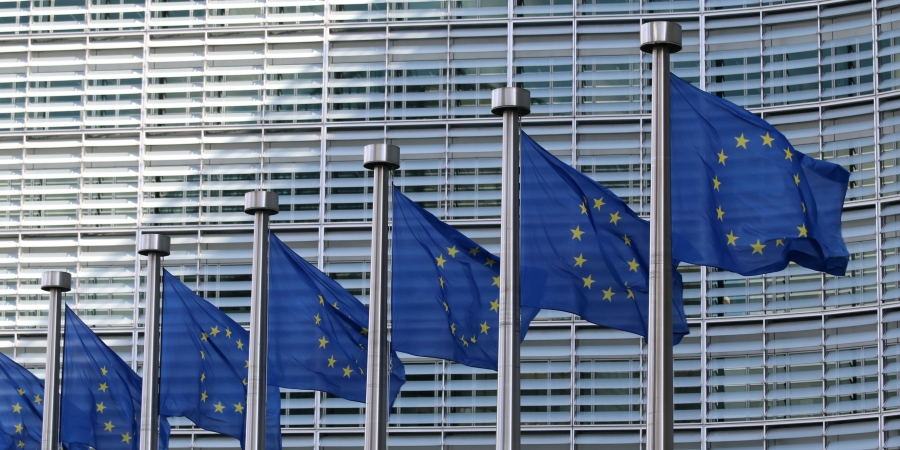by Kristina Hooper, Global Market Strategist, Invesco Ltd., Invesco Canada
When I was in high school, we read Henry James’ “The Europeans” in our English Literature class. A major theme in the novel is the contrast between Europeans and Americans, with Americans in the “New World” somewhat ironically portrayed as conservative, traditional and more focused on money, while Europeans are portrayed as less traditional, more progressive and more emotional. I have thought about that book a lot in the past week.
If you read my blog last week, you know that I expected more fiscal stimulus to be on its way in the US — and with good reason as COVID-19 cases reached new records, threatening to stall the recent signs of economic recovery. Well, last week was not exactly what I had expected. Yes, we saw more fiscal stimulus — but not from the US. Instead, the European Union (EU) exhibited amazing cooperation in agreeing upon a record stimulus package. The US, on the other hand, has moved further away from reaching a deal on additional stimulus — even though its economy is in much greater jeopardy given its inability to control rising COVID-19 infections and its lack of a social safety net such as that enjoyed by Europeans.
Unfortunately, the US Senate couldn’t arrive at a deal on fiscal stimulus, even though the US has experienced 18 consecutive weeks with initial jobless claims of more than 1,000,000.1 Moreover, the trend has moved in the wrong direction: After 15 weeks of decline, initial jobless claims rose for the week ending July 18, hitting a higher-than-expected 1,416,000.1 The economic recovery is at risk — and that sentiment is being echoed by America’s CEOs. Ed Bastian, the CEO of Delta, explained that “I have a more cautious view than I did four weeks ago … The fear that the virus has created in the South has put people more into a stay-at-home mentality than we’d seen before.”2 Arne Sorensen, CEO of Marriott International, agreed: “I’m less optimistic today than I was 30 days ago. This virus is in so many different markets of the United States.” 2 And the US economy will now be at greater risk given that unemployment benefits are running out. To put it simply, US Senate dysfunction is worrying right now.
In contrast, the European Union was able to pull off a stimulus package — even though its economic situation is arguably better. For example, the flash Eurozone Composite Purchasing Managers’ Index rose to a very strong 54.8 for July, helped by improvement in both manufacturing and services.3 However, that didn’t deter Europeans from breaking with tradition — there had long been opposition to this kind of burden sharing — and actually agreeing on sizable fiscal stimulus for the EU. This package includes 390 billion euros of grants and 360 billion euros in low interest loans.4 The package was quite progressive, with a substantial portion of funds allocated to combating climate change. The speed with which the agreement came together — about four days — was a real positive surprise. And while this may not be truly transformative, it is a very important step closer to a fiscal union. I also believe it is a positive in terms of countering populist, anti-EU movements that threaten to fracture the EU.
The implications of Europe’s achievement and America’s lack of success — both in controlling the virus and bringing a fiscal stimulus package to fruition — means European assets will likely outperform US assets in the near term, in my view. I expect to see continued strength for the euro, and I believe European assets may be more attractive to investors than US stocks.
US-China tensions grow as consulates ordered to close
In addition to the economic pressure of the coronavirus, US stocks face another headwind — rising tensions with China. I warned about this issue in last week’s blog, and then later in the week, the US ordered China to close its consulate in Houston — which China described as an “unprecedented escalation.” In response, China ordered the US to close its consulate in Chengdu.
US Secretary of State Mike Pompeo ratcheted up the rhetoric even further in a speech last week, asserting that “securing our freedoms from the Chinese Communist Party is the mission of our time.”5 I wouldn’t be surprised to see tensions rise further as we get closer to the US presidential election in November. A sign of the fear it is creating can be found in the price of gold, which hit the $1,900 level last week.6
Looking ahead
Countering the headwinds facing US stocks, such as rising US-China tensions, there are some powerful tailwinds that I think matter more — including the reality that the world is awash in monetary and fiscal stimulus, which is supportive of equities.
And so in the coming week, we will be closely following those two areas of importance: fiscal stimulus and monetary stimulus. We will be watching the Federal Reserve’s announcement and press conference closely. I expect nothing new from the Fed but believe it will continue to underscore some of its key messages: that it remains very accommodative and that there needs to be more fiscal stimulus. And we will be following the ongoing negotiations in the US Senate on fiscal stimulus — I remain optimistic that some sort of package will be passed. (After all, election years have a funny way of encouraging lawmakers to be more generous.) Perhaps Americans will conform to Henry James’ characterization of them — if they really do care about money so much, then it behooves them to keep the US economy going with an injection of fiscal stimulus at a time when it is in danger of stalling.
This post was first published at the official blog of Invesco Canada.













